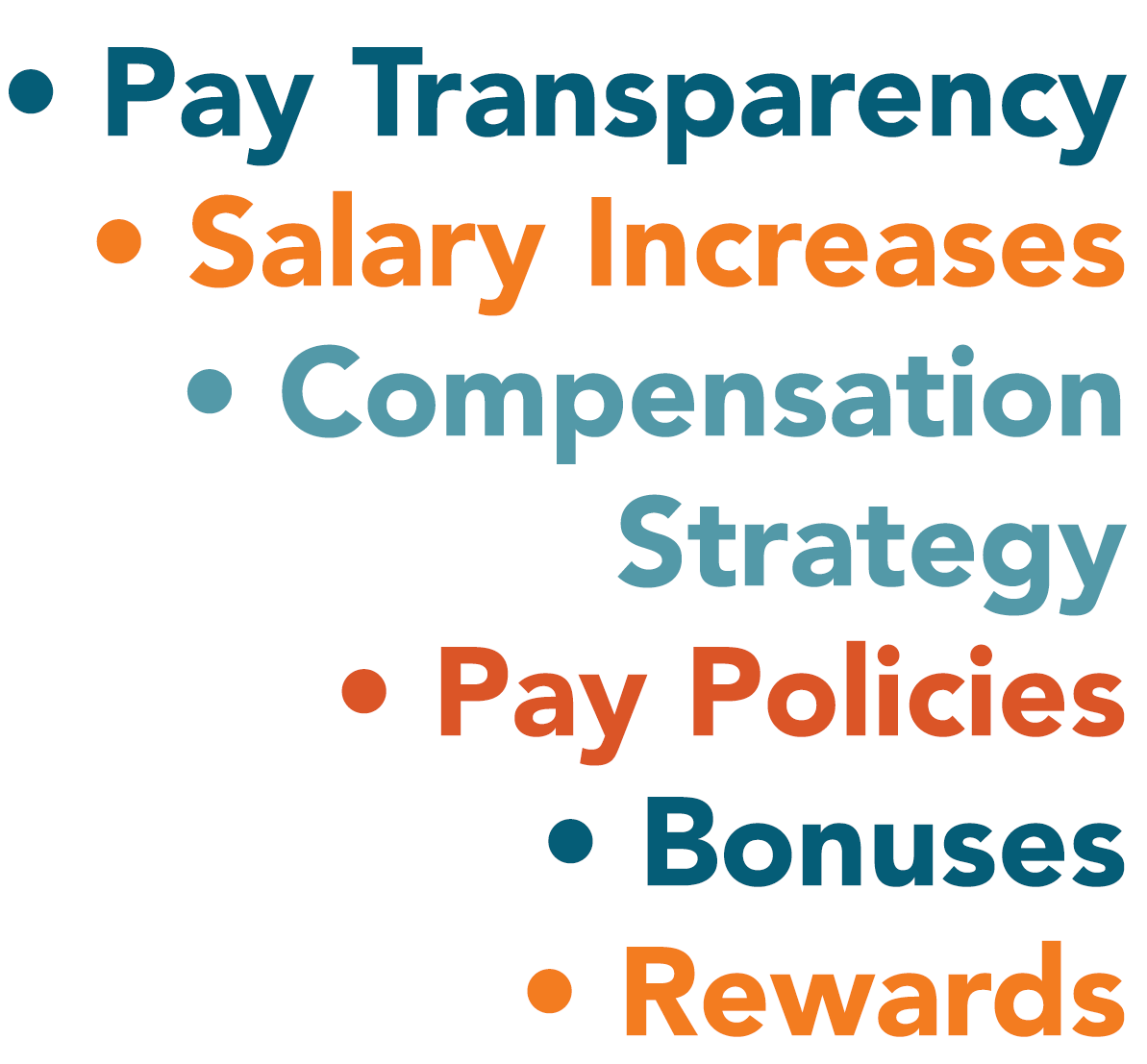9.14.23
By Molly Wood, SPHR, MAOL Senior HR Consultant 
Effective January 1, 2023, employers with 15 or more employees were required to include pay ranges in all their job postings, as well as provide current employees with the pay range for their position upon request. From my last gander at Indeed, it looks like most employers are complying with the mandate to provide the salary range. But are you ready to have compensation discussions with your employees and/or candidates?
The enactment of compensation legislation has been sporadic, and not particularly effective. The Fair Labor Standards Act of 1938 established minimum wage. The next federal mandate wasn’t until 1963 when the Federal Equal Pay Act of 1963 prohibited pay disparity between men and women for equal work on jobs when jobs require equal skill, effort, responsibility, and similar working conditions. That obviously didn’t work since in 2016 the Bureau of Labor Statistics reported that full-time women workers were paid $.82 on the dollar compared to their male counterparts. In 1964, Title VII banning employers from discriminating on the basis of race, color, religion, sex, or national origin was established. Despite the legislation, people in minority ethnic groups in the United States have traditionally earned less than people of European descent. Since 2016, California has changed some of the language of the federal statutes and established the California Fair Pay Act. The most dramatic changes were in prohibiting employers from asking about previous compensation (you should pay based on the job, not the person’s former pay) and in the pay scale disclosure requirements.
The intention of these mandates is to level the playing field of compensation and pay people based on the value of the job to the organization, and the skills and experience that an employee applies to the job. This should be determined based on objective facts, and that in turn would remedy any discrepancies based on sex/gender, ethnicity/race, etc.
That is the legislation and theory, now let’s get to reality. If you have a pay range of $25 – $33/hour, what qualifications are used to decide what rate you will offer a candidate? A thorough analysis of the factors that show competence in a role, and the type of skills and knowledge that add value to the position is needed. Once you have objective guidelines for compensation, you can have a candid conversation with staff and applicants on where they would fall in the pay range and why.
SDEA will be presenting “Creating a Transparent Comp Plan”, a webinar. on September 26, 2023 from 11:00am – 12:00pm. In this program we will be discussing the background of compensation laws and providing tools to help you meet requirements and establish a fair and equitable compensation plan.
If you have questions about your compensation strategy, SDEA can help. Call us at 858-505-0024. We are not just here for you, we are HeRe with you.




